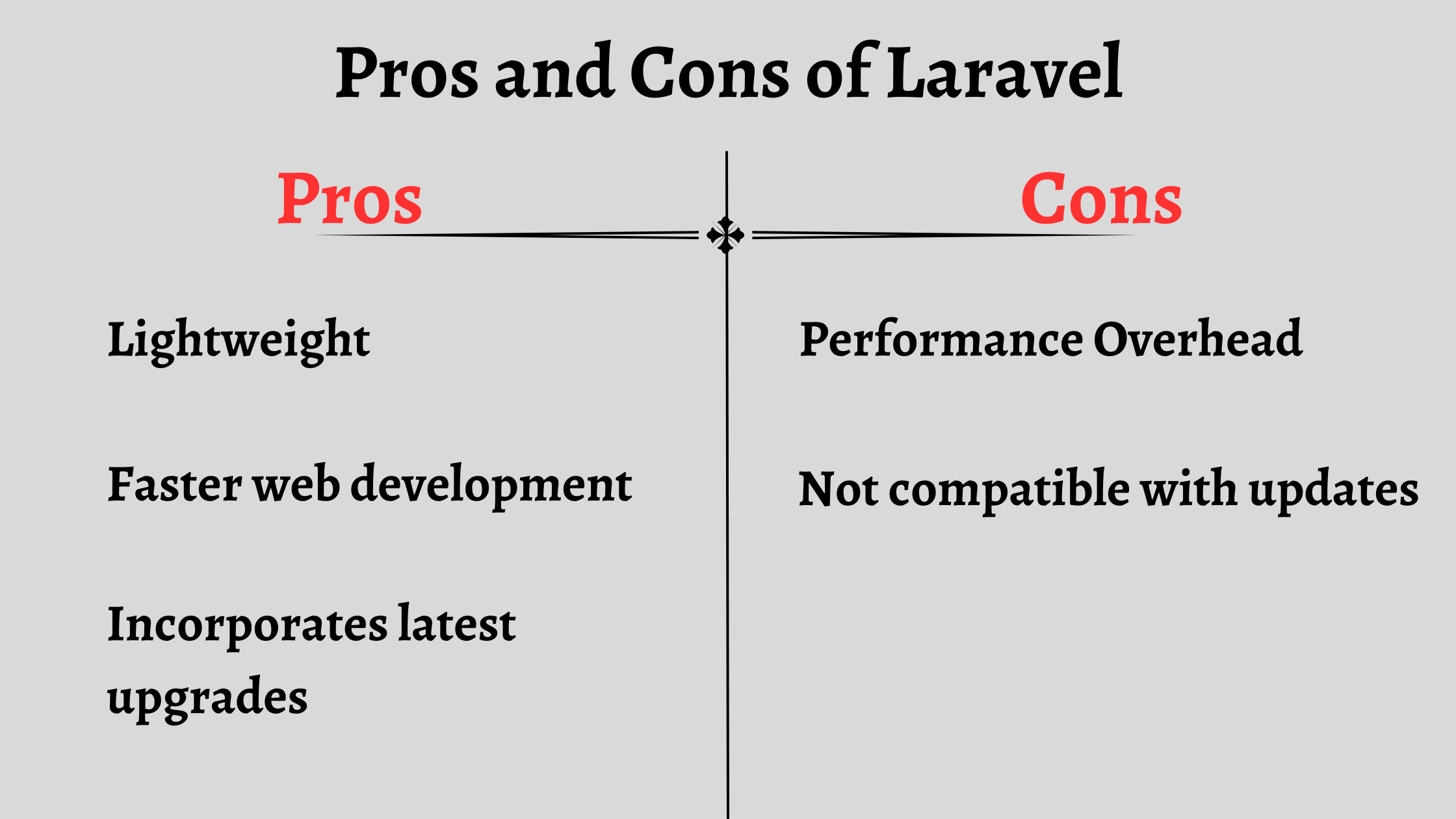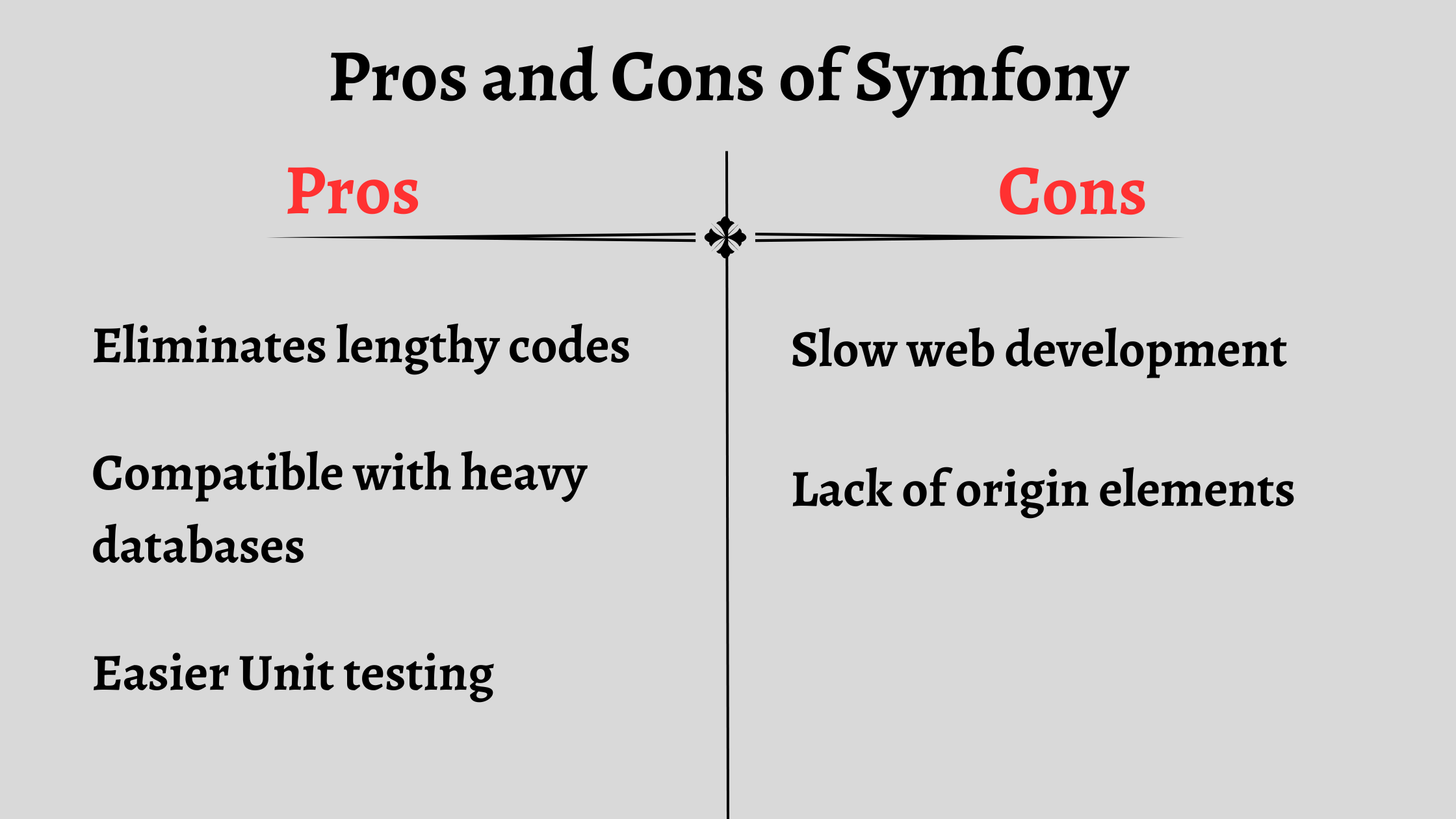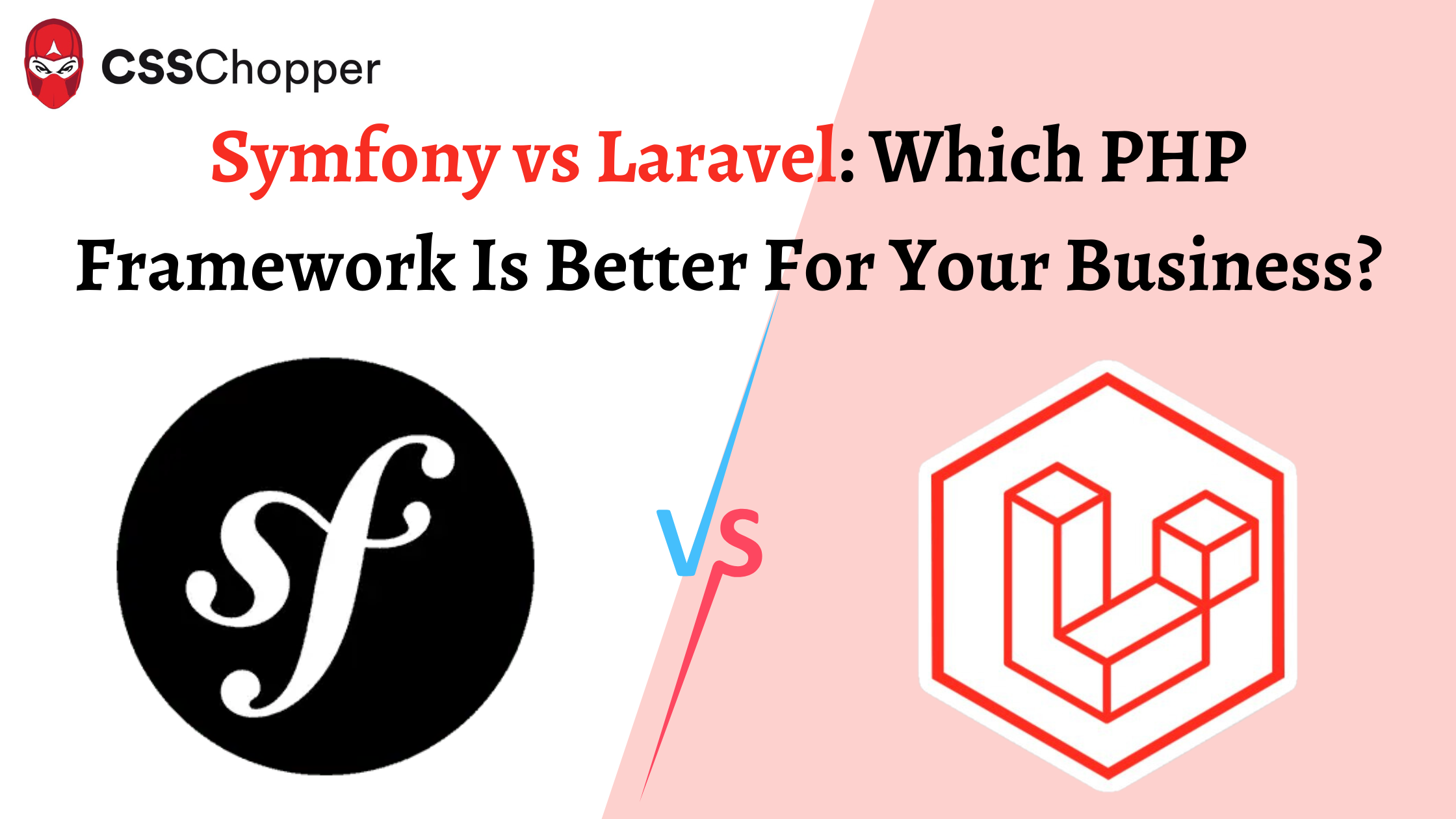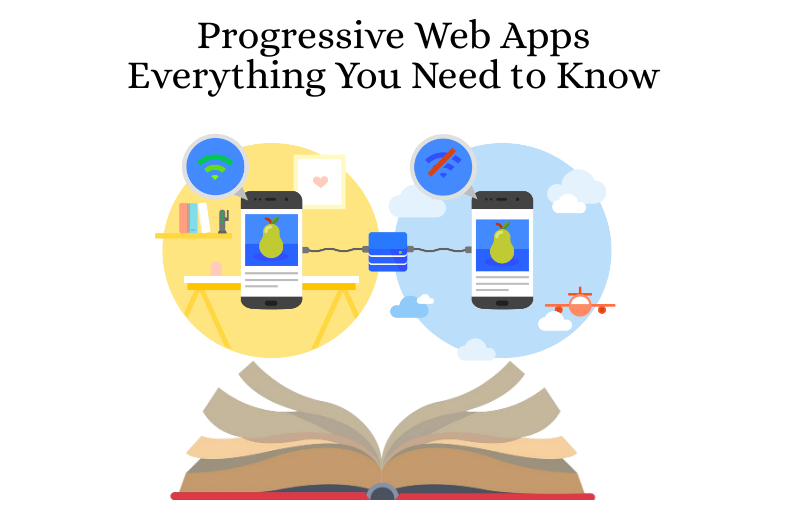- Overview of Laravel
- Features of Laravel
- Laravel Use Cases
- Overview of Symfony
- Features of Symfony
- Symfony Use Cases
- Pros and Cons of Symfony and Laravel
- Head-to-Head Comparison of Symfony vs Laravel
- Factors to Consider When Selecting Between Symfony and Laravel
- Making the Right Choice
- How can CSSChopper Help you in Laravel Development?
Are you in a quandary about choosing the right PHP framework for your business? Making this choice for web development is one of the toughest decisions you have to make. However, Symfony and Laravel stand out as two of the most used PHP frameworks.
With a set of pre-built components that can be used to build web pages and applications, both offer better and faster web development. Time is ultimately saved because you don’t have to make the component from the start. The PHP framework Laravel offers a variety of features and tools that make it simple to create websites or web apps. Symfony, on the other hand, is renowned for its flexibility.
Among them, selecting the right PHP web development framework for your project becomes crucial. This can be done by adequately understanding the pros and cons of Symfony and Laravel to help you find the suitable framework based on your project and the time it takes to develop a web solution.
Overview of Laravel
With around two million live websites using Laravel, it exhibited the popularity of this MVC-based PHP framework. You can develop a high-performing web solution with minimal coding using Laravel.
It is an open-source PHP framework known for its elegant syntax. Not only that, working on this framework is easier because it requires the least amount of configuration and a quick writing style.
Features of Laravel
It offers various features that help develop robust and efficient web solutions. Some of the significant ones are as follows:
1. Middleware
In the request processing pipeline, middleware plays a vital role in Laravel. This framework lies between a web server and a web solution, allowing you to perform actions before or after the request reaches the route handlers. From authentication to authorization, middleware is helpful for an array of purposes.
2. Blade Templating Engine
Blade templating engine allows the use of the templating engines fast and efficiently, making syntax writing easier. This convenient and efficient way to write dynamic, reusable, and clean-looking HTML templates makes working with PHP code within your HTML easier without giving up on readability and maintainability. Ultimately, it simplifies the process of developing appealing and dynamic web interfaces.
3. Effective Routing
It maps the incoming URLs to specific controllers and actions in your PHP-based web solution. You can define the diverse parts of your web solutions responding to various URLs or routes. By effectively utilizing its routing system, you can create clean and more organized URLs for your websites or web applications.

Laravel Use Cases
Varied businesses leverage the power of the Laravel framework in web development; some of the popular ones are as follows:
- Alison: It’s an e-learning platform that offers free online courses. Talking about the scalability of Laravel, around 21 million students have enrolled in this, and it’s still working seamlessly.
- Invoice Ninja: A Platform created for freelancers and firms using Laravel. This website uses this framework for personalizing user permission levels.
- 9GAG: It’s a Hong Kong-based social media website where people can easily upload their content.
Overview of Symfony
Symfony is a popular open-source PHP framework known for its ability to scale a web solution. This makes it a flexible PHP web development framework. It is well-suited for large-scale enterprises because of its dependence on MVC architecture.
Features of Symfony
Its features are essential in smoothly developing and running a web solution. The following are some of the major ones:
1. MVC Design Pattern
It separates a web solution’s concern into three components: Model, View, and Controller. Where the Model represents a web solution’s data and business logic, the view is responsible for presenting this data. And the Controller handles the logic that ties the model and views together. This processes user input, interacts with the Model to retrieve and manipulate data, and selects the appropriate View to show it. This architecture is ideal for scalable and organized website development projects.
2. Twig Template Engine
It is a fast, lightweight, and versatile template engine, useful in creating complex and dynamic web pages. It is designed to improve the separation of logic and presentation in web solutions. Generally, these are used to generate dynamic HTML, XML, or any other format to create complex and dynamic web pages. This offers a clean, more secure way to separate the logic from the web solution’s code.
3. Dependency Injection
It is used to manage the dependencies between diverse components of a web solution. In this framework, DI, or Dependency Injection component, makes it easier to create modular web applications that are easily maintainable. This feature of Symfony enhances code modularity, testability, and so on.

Symfony Use Cases
The following are the major businesses that are using Symfony:
- Trivago: A well-known hotel booking/price-comparing web app using this flexible framework.
- Spotify: Over 75 million users using Spotify showcase the ability of this framework to scale a web solution.
- Vogue France: Vogue is a known fashion and lifestyle magazine. Vogue France is using Symfony and has evidenced growth in visitors.
Pros and Cons of Symfony and Laravel
Evaluating the pros and cons of both PHP web development frameworks can help you analyze which one is the right choice for your business.
Pros of Laravel
- Being a lightweight framework, Laravel offers fast web development solutions.
- It incorporates the latest and advanced PHP development trends.
- Its compatibility with automated testing models helps save time during web development.
Cons of Laravel
- Some web solutions might be heavier for faster loading.
- It’s not compatible with updates.
Pros of Symfony
- It eliminates writing lengthy code.
- This PHP framework is compatible with supporting heavy databases efficiently.
- The unit-testing process becomes easier in Symfony.
Cons of Symfony
- Development of a web solution takes a lot of time to be market-ready.
- It depends on other technology because of the lack of original elements, resulting in slow loading
Head-to-Head Comparison of Symfony vs Laravel
Selecting the right one between Laravel framework development and Symfony development is one of the most arduous decisions you have to make. So, for convenience, cost, performance, and time-savvy measures, you need to look at the most prominent ones before opting for one for your project.
1. Performance
The performance of a PHP web development framework is one of the foremost things that you should consider. Laravel is booming in this market with an established user base. With the launch of its newer upgrades and versions, the performance of this framework has been enhanced. Within 60 milliseconds, an average web solution based on Laravel loads.
Comparatively, Symfony has worked harder on its performance. With the release of the 6.3 version of this framework, many changes have been made to this. With all these improvements in the framework, the web solution built on Symfony takes more than the Laravel-based solutions to load.
2. Security
Laravel has an easier and less complicated approach to managing security during web development. With a set of authentication and password management approaches, this framework makes securing your web solution’s data easier.
On the other hand, with permission schemes and in-built security systems, Symfony requires strategic implementation, making it secure enough to protect the user’s data. Resultantly, both the frameworks met basic to advanced requirements of security.
3. Database Migration
This involves extensive attention and in-depth processing from the end of the PHP web development company.
The entire process of migrating data is to be done manually in Laravel without determining the field definitions. This makes it time-consuming and error-prone. However, various tools and libraries can be used to automate this entire process and help reduce the time and effort required to migrate data.
Whereas in Symfony, database migration is completely streamlined with an automated process. This states that it doesn’t require manual creation or updation of database schemas. Instead, the CLI of this framework is useful in generating the necessary SQL statements. As a result, it saves an ample amount of time and effort, especially when it is done for larger projects.
4. Scalability
The scalability of Laravel can be seen through the numerous successful web projects. It inherently states this as a scalable open-source PHP framework, enabling rapid and efficient web solutions. Also, this framework leverages powerful technologies like MySQL and an advanced caching system to enhance its scalability one step further.
On the other hand, Symfony uses reusable components to make the websites/ web apps more scalable. This empowers the PHP developers to efficiently manage user requests through multiple adjacent to optimize the scalability of a web solution.
As a result, both Symfony and Laravel can be scaled vertically by adding more servers to increase server resources horizontally. However, the decoupled architecture of Symfony offers more grade control over the components of a web solution.
Factors to Consider When Selecting Between Symfony and Laravel
When choosing between Symfony and Laravel, you need to consider certain points to minimize the risk of a wrong decision. Here are some of these:
1. Project Requirements
Your project requirement is one point you must consider while evaluating the right PHP framework. You can understand the requirements by asking some questions like:
- What type of business do you run?
- What are the major necessities of your business?
- Your target audience
- Which locality do you serve in? and so on.
These are the primal points that should remain focused for deciding upon the project requirements. This will give clarity on what to “do” and “donts” on your web development project and consequently determines the right framework type for your business.
2. Size of your Project
Your project size plays a pivotal role in selecting the appropriate framework. It is to be considered that Laravel is most suited for small to medium-sized businesses, and comparatively, Symfony is the perfect fit for handling more extensive projects. However, Laravel can be used for big and high-investment projects if the Laravel development company has the required expertise.
3. Scalability
Your web solution’s scalability is an essential aspect you must focus on while selecting the proper framework for your business. Laravel, on the one hand, can develop scalable web solutions for small to medium-sized organizations. On the other hand, the modular structure of Symfony, which is based on a set of standalone and decoupled components, makes it highly scalable.
However, suppose the PHP Laravel development company you hired can work on effective database optimization, caching, and other essential techniques wisely. In that case, this framework is also best suited for large-scale businesses with extensive growth.
4. Timeframe
The less time your web solution takes to be developed, the higher the chances you have to attract maximum users. If you want a faster web development and deployment process, you should select Laravel. Symfony requires more time to develop and deliver the finished solution in comparison.
To make the best decision, you can appropriately evaluate each factor.
Making the Right Choice
There are various factors you have to consider before selecting the right framework between these two. You can find the most suitable one for your business by understanding the requirements of your project and business goals.
Laravel is the preferred choice for small to medium-scale business types. However, its ability can be scaled if aptly used by the right PHP development company. On the other hand, Symfony’s capabilities make it the ideal choice for complex projects.
How can CSSChopper Help you in Laravel Development?
You can witness various significant benefits in Laravel development by partnering with us. Our team is adaptive to utilizing the appropriate techniques and resources for this framework, from fast-performing to highly scalable web solutions. We are committed to creating bespoke, fully functional web solutions using the latest technologies and Laravel version upgrades.
Our team has worked on various Laravel-based projects and can help you develop a web solution to meet your company’s needs. As a premier PHP Laravel development company, we collaborate closely with our clients to understand their goals and create custom online solutions around those demands.
Categories
Recent Posts
Popular Posts
- How to Choose a Reliable Offshore Development Partner?
- Transforming Web Development with HTMX’s Declarative Approach for Dynamic UIs
- Why Your Conversion Funnel Needs a Composable Commerce Solution?
- How to Outsource Web Development in 2025: Complete Guide
- What are the Top Web Development Trends for 2025?




